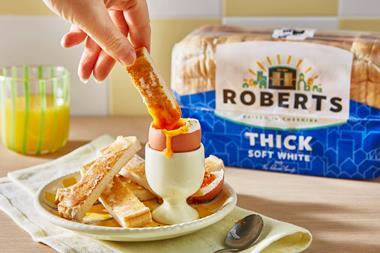Bakery manufacturers have contributed to a 10% fall in salt reduction during the last five years, it has been revealed.
The move comes as part of the Food and Drink Federation’s (FDF’s) launch of a new report entitled Delivering Healthy Growth, in which it noted the figure achieved by its own members in a bid to deliver healthier products.
The report showcases the work of food manufacturers that have pledged voluntarily to drive down levels of salt, in addition to saturated fat, sugar and calorie content, as part of the Responsibility Deal – an initiative set up by the government in which businesses and other influential organisations can contribute towards improving public health.
Bakery manufacturers featured in the report included Allied Bakeries, which has achieved the 2012 salt targets for all of its bread and rolls, as well as United Biscuits, which has seen 96% of its sweet biscuit portfolio achieve a sodium reduction and reach current targets set by the government.
Ian Bowles, group head of sustainability at Premier Foods, told British Baker: “We have committed to reducing calories by 30% by up to 2014, specifically for our power brands. If you are looking at Hovis, we have reduced the calorie content by 32 calories per loaf by reducing the saturated fat content.
“We produce 250 million loaves per annum, which equates to a reduction in calories across the year of between five billion and 7.5 billion calories. The Responsibility Deal is looking to reduce five billion calories from the UK diet each day, so the reduction we have been able to make within Hovis probably equates to one-and-a-half days towards that commitment.”
Jill Charlton, labelling and nutrition manager at Warburtons, also revealed to British Baker: “We have signed up to a number of pledges, certainly the salt reduction targets, and we have achieved them. All our products now show the 2012 target and many of them are below that, so we are quite proud that we have reached the voluntary target.
“We have also done a lot of work on the out-of-home calorie labelling pledge, so we are working with all our bakeries, along with the restaurants and vending machines on our premises, to get calorie labeling on our products.”
At the launch of the FDF’s publication, Anna Soubry MP, parliamentary under-secretary of state for public health, addressed the audience about how the report reflects the work of the Responsibility Deal.
She said: “As an industry you understand that you are regulated – people expect certain standards with food in the way it is prepared and its content. It may be controversial, but I think you have a moral obligation because you are incredibly powerful – you wouldn’t be able to expand your products and your markets as you do, because you have brands and people respect them.”
Soubry added that a further eight signatories had signed up to the Responsibility Deal’s calorie reduction pledge to help consumers reduce their calorie intake, joining 23 existing signatories, with manufacturers accounting for the largest group of industry participants.
As part of a question-and-answer session, Dr Susan Jebb, head of diet and population health at the Medical Research Council, reflected on food and drink companies who have yet to involve themselves with the Responsibility Deal and sign up to the government’s health targets.
She said: “Some companies are keeping their head below the parapet. We should be putting a spotlight on these businesses not making a commitment and should ask them why they are not stepping up to the plate.”
One of the topics of discussion at the FDF’s report launch revealed the possibility of larger food manufacturers coaching and training small to medium-sized firms, as a way for them to impart their technical knowledge in making products healthier as part of a mentoring scheme.
Localising the Responsibility Deal was discussed among the panel as a way of broadening the engagement beyond larger corporations and providing shared learning of local experience.
































No comments yet